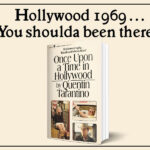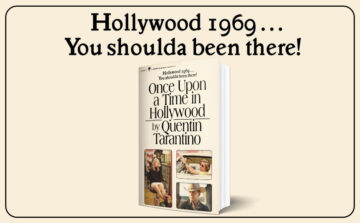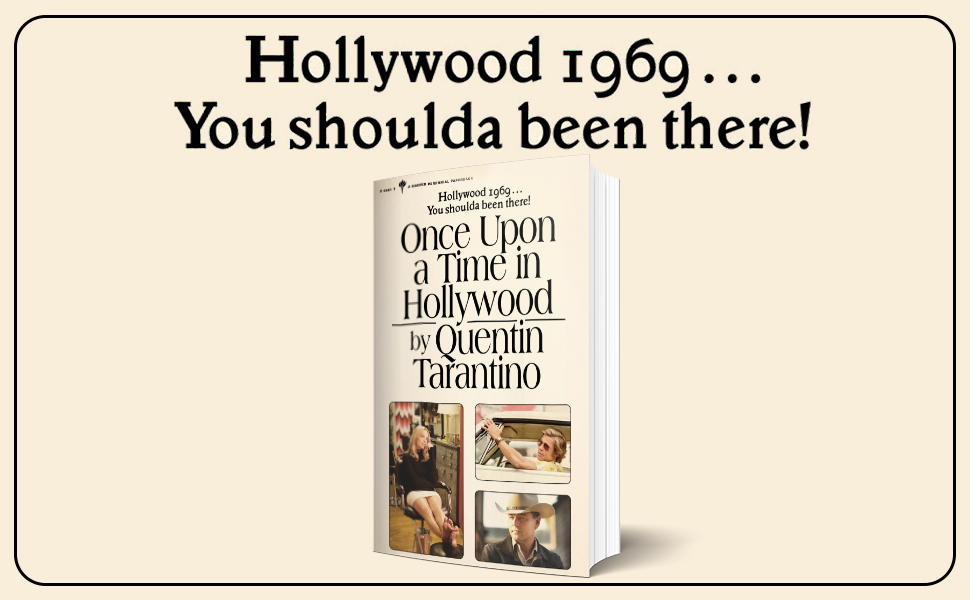


There’s no business like show business. Or maybe — as Bart Simpson once wrote on the blackboard — “there are plenty of businesses like show business.”
Quentin Tarantino’s ninth film, 2019’s Once Upon a Time in Hollywood, follows aging TV star, Rick Dalton, being pushed into playing villainous character roles. Drunk and depressed, Dalton and his sidekick/hanger-on/stunt double Cliff Booth watch reruns of his show and get into a series of increasingly serious scrapes as the actor searches for a role that will redeem him. The film’s outline–shorn of historical references that made critics lionize it as “a love letter to old Hollywood”–sounds suspiciously like another media property in the middle of its final season that summer.
Called a Mad Men replacement, Netflix’s satirical adult cartoon series Bojack Horseman also follows an aging former TV star and his sidekicks/hanger(s)-on through their misadventures in Hollywood (“Hollywoo”). Along the way they confront issues that fall under the rubric of “toxic masculinity,” such as workplace harassment, emotional immaturity, and the abuse of power in an industry with wildly unequal power dynamics. The show makes clear that neither old, nor new, Hollywood deserves a love letter — no more than other industries that allow such behavior. (It also features a caricature of Tarantino.)
Once Upon a Time in Hollywood, by contrast, celebrates the old star system and its privileges — or so Richard Brody argues at The New Yorker — in an “obscenely regressive vision of the 60s” that scrubs the decade of its protests and brutal crackdowns. The premise underlying Tarantino’s alternate-history dramedy seems to be: “If only the old-line Hollywood people of the fifties and sixties had maintained their pride of place—if only the times hadn’t changed, if only the keys to the kingdom hadn’t been handed over to the freethinkers and decadents of the sixties—then both Hollywood and the world would be a better, safer, happier place.”
Tarantino sets up “hippies,” a favorite pejorative of his characters, as fall guys for the Manson Family murders, rather than Manson’s own white supremacist beliefs. As many critics noted at the time, “the only substantial character of color, Bruce Lee (Mike Moh), is played… as a haughty parody” who gets “dramatically humiliated” by Pitt’s swashbuckling stuntman — who is rumored to have murdered his wife and who dispatches the film’s female Manson cult villains with the sadistic glee of a true psychopath, a scene, Brody writes, “that only hammers [Tarantino’s] doctrine home.”
Celebration there may be in the film, but there is also mourning. Christopher Hooten at Little White Lies scoffs at the “love letter” idea and sees the film instead as a lament for the end of cinema’s “freethinkers”:
This is Tarantino’s passion project – potentially his last film – and it comes across as him trying to sneak out a movie with a ’70s sensibility and tone before it’s no longer possible. Once the likes of Tarantino and Martin Scorsese have bowed out, that might well be it for auteur-driven filmmaking on a blockbuster scale. We’ve reached a polarisation in the industry where a director either works as a hired (and frequently fired) gun for a Disney or a Warner Bros, or else goes cap in hand in the hope of scraping together a few million dollars to make something more personal and unique.
The Tarantinos of the world might be a dying breed, but Tarantino isn’t leaving his art behind so much as turning his hand to “more personal and unique” projects – in this case a novel, and more specifically, “the pulpiest of pulp fiction — the novelization,” writes Peter Bradshaw at The Guardian. Once Upon a Time in Hollywood: A Novel finds him “cranking up the backstories, mulching up reality and alt.reality pastiche, ladling in new episodes,” and flexing his formidable strengths as a writer of crackling dialogue and action. The book also promises an ending viewers of the film won’t see coming.
The novel explores the inner lives of its female characters, including, of course, Sharon Tate “and the fictional child actor Trudi Fraser,” and adds an even darker edge to Cliff Booth, who is said to admire a certain character despite or because he is “unconsciously racist, consciously misogynistic.” This is Tarantino, after all, none of whose characters are ever shining examples of virtue. But in the post-auteur, post-Weinstein future, he seems to suggest, maybe old-Hollywood anti-heroes like Cliff Booth and Leonardo DiCaprio’s washed-up star Rick Dalton will only shine on streaming TV shows and in the pages of throwback pulp novels, “packaged like those New English Library paperbacks that used to be on carousel displays in supermarkets and drugstores.” You can pick up a copy of Once Upon a Time in Hollywood: A Novel here.
Related Content:
Quentin Tarantino Explains How to Write & Direct Movies
Quentin Tarantino’s Copycat Cinema: How the Postmodern Filmmaker Perfected the Art of the Steal
An Analysis of Quentin Tarantino’s Films Narrated (Mostly) by Quentin Tarantino
Josh Jones is a writer and musician based in Durham, NC. Follow him at @jdmagness
Quentin Tarantino Releases His First Novel: A Pulpy Novelization of Once Upon a Time in Hollywood is a post from: Open Culture. Follow us on Facebook and Twitter, or get our Daily Email. And don't miss our big collections of Free Online Courses, Free Online Movies, Free eBooks, Free Audio Books, Free Foreign Language Lessons, and MOOCs.
from Open Culture https://ift.tt/3hiev13
via Ilumina
Comments
Post a Comment